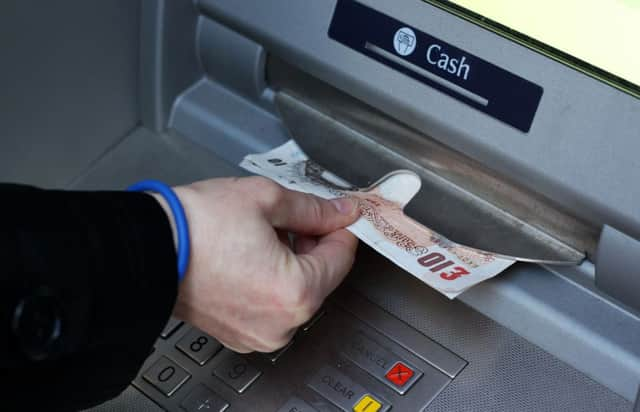Free current accounts unsustainable, customers told


Compiled by financial services firm PwC, the report said that while 62 per cent of consumers said they were not prepared to pay anything for their current account, a “clear majority”, 66 per cent, were also aware of hidden current account charges.
Fewer than one in three customers surveyed said they trusted their bank and around half would be likely to switch if an up-front fee was introduced instead. The report argued that in reality, current accounts were not free at all as they are funded through overdraft charges, penalty fees and uncompetitive or zero rates of interest.
Advertisement
Hide AdAdvertisement
Hide AdIt said the system resulted in some customers cross-subsidising others through the charges they paid. The report, titled There’s No Such Thing as a Free Lunch, said that the industry must move towards a more transparent fee structure.
Steve Davies, retail banking leader at PwC, said: “The irony is that most customers understand the unspoken bargain operating here and prefer it to paying an up-front fee.
“However, the free current account results in some customers being served at a loss to the bank.
“A more sustainable approach is that customers are asked to pay a fair price in return for reasonable services, which would reduce the risk of banks seeking to recover these costs by selling other products and services that the customer may not want or need.
“We can trace the history of this problem through the various mis-selling scandals in the industry over the last decade.”
The report was based on a survey of more than 2,000 people.
Mr Davies said an individual bank could risk being “left on its own” and at high risk of losing customers if it decided to remove its free banking products.
He went on: “It is possible that the regulator could intervene. However, despite the principles and benefits, it seems unlikely that regulators will intervene, not least due to the overwhelming customer sentiment on the subject.
Advertisement
Hide AdAdvertisement
Hide Ad“The most likely outcome is the gradual decline of the free-if-in-credit bank account model. We are also likely to see innovative new digital models that challenge the current account approach.”
Concerns about the current account market were raised last year by consumer group Which?, which highlighted a “worrying lack of innovation in products and service’’ and said consumers often found it hard to compare accounts.
Figures released by the Payments Council last month showed that 1.16 million current account customers switched their bank or building society last year.
The figures released by the payments body suggested that Santander’s 123 current account, which does charge a monthly fee of £2 in return for cashback on household bills and interest of up to 3 per cent paid on balances, had made particularly strong gains in attracting customers since new rules made the process of switching current accounts easier.